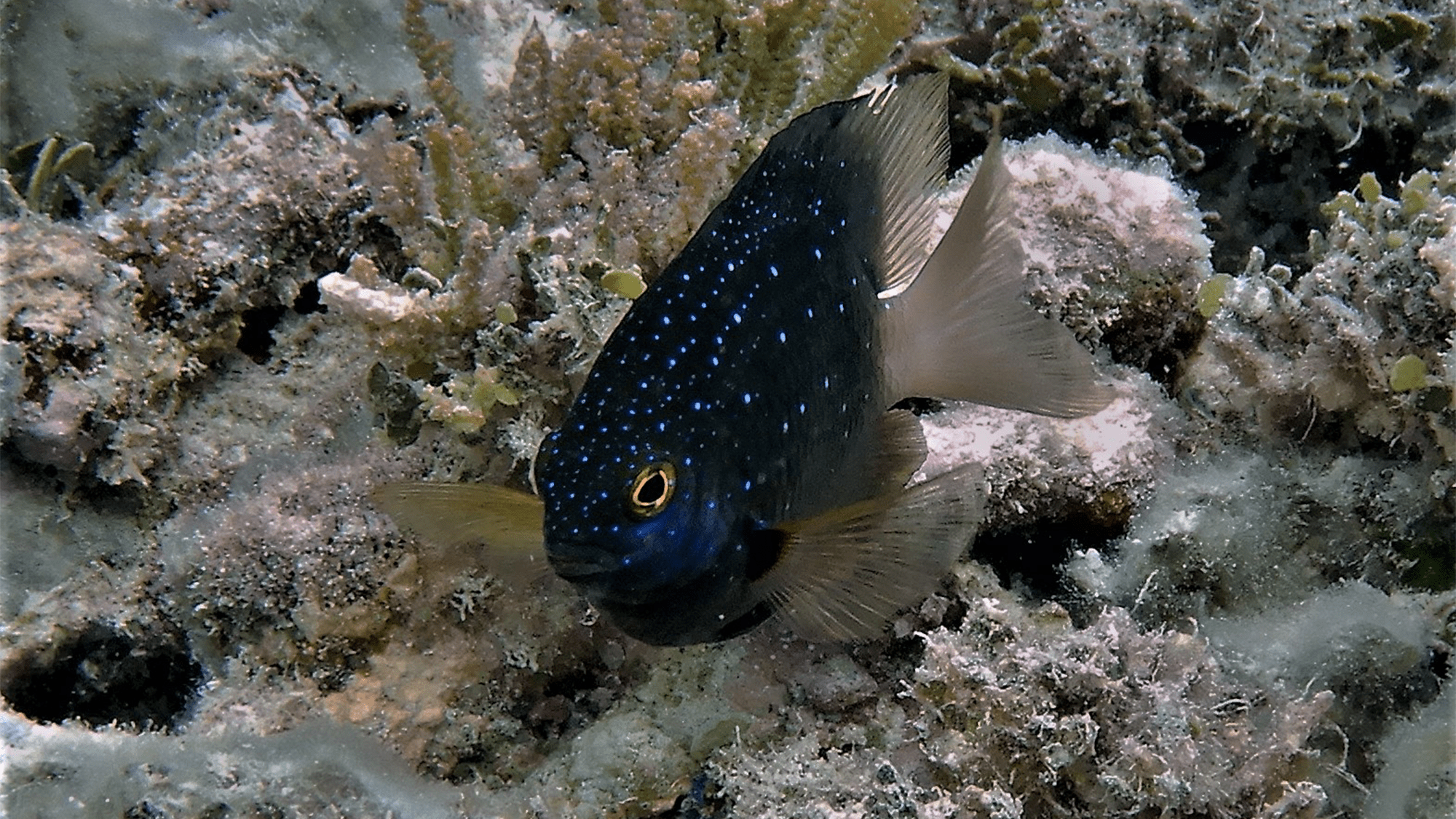

Rats and rodents are typically are more associated with trash heaps and urban space—not the abundance of colorful life that surrounds the ocean’s coral reefs. True to their invasive nature, rats can even actually be found on tropical islands where they certainly are not native. Black rats (Rattus rattus) can be found on the remote Chagos Archipelago in the Indian Ocean, roughly 1,000 miles off the coast of the southern tip of India. Many of the rats arrived in the 1700s as stowaways on ships from Europe, and they have noticeably affected the ecosystem on about 34 of the 55 islands in the archipelago.
A study published January 5 in the journal Nature Ecology and Evolution looked at five black rat-infested and five rat-free islands in the archipelago. The rats appear to have changed the territorial behavior in some of the fish on the surrounding coral reefs.
[Related: Rats can’t barf—here’s why.]
One of these is the jewel damselfish (Plectroglyphidodon lacrymatus), an herbivorous species of tropical reef fish that tends to and “farms” algae in the branches of corals. They appear to have altered their behavior because the rats have disrupted an important nutrient cycle.
The region’s seabirds travel into the open ocean to feed and then return to nest on the islands. When they return, they deposit nutrients through their poop and that are then washed into the ocean, which fertilizes the coral reef ecosystems.
The rats attack and eat some of the small seabirds and their eggs, which has severely hurt their populations. According to the study, the density of seabirds is up to 720 times smaller on the rat-infested islands.
Fewer seabirds means fewer nutrients reaching the water surrounding rat-infested islands, to the tune of 251 times less nitrogen flowing onto the coral reefs around these islands. This lowers the nutrient content in the seaweed that herbivorous fish eat.
On the islands without any rats, the farming damselfish aggressively defend their small patches reef to protect their food source called turf algae. The team observed that the farming damselfish on the reefs next to rat-infested islands were more likely to have larger territories and five times more likely behave less aggressively than the fish who lived on reefs adjacent to islands without rats.
[Related: This rainbow reef fish is just as magical as it looks.]
“Jewel damselfish around rat-free islands aggressively defend their turf because the higher enriched nutrient content means they get ‘more for their money’, and this makes it worth the energy cost needed to defend,” said Rachel Gunn, who conducted the research as part of her PhD at Lancaster University and who is now at Germany’s Tuebingen University, in a statement. “Conversely, the fish around rat-infested islands behave less aggressively. We believe that the presence of rats is lowering the nutritional benefit of the turf to the extent that it is almost not worth fighting for, which is what we are observing with these behavior changes.”
Observing both the reduction of nutrients due to the presence of rats on the island and the changes in behavior in the damselfish possibly has wider implications for the spread of different coral species, how other reef fish are distributed, and the resilience of damselfish due to changes in genetic traits over multiple generations.
“The algal farming of damselfish affects the balance of corals and algae on the reef. Their aggression towards other fish can influence the way those fish move around and use the reef,” said Gunn. “We do not yet know what the consequence of this behavioural change will be but ecosystems evolve a delicate balance over long time-scales, so any disruption could have knock-on consequences for the wider ecosystem.”
The study also provides more evidence that invasive rat populations should be eradicated from tropical islands, since they can effect ecosystems on land and in the water.
“Rat eradication has the potential to have multiple, cross-ecosystem benefits. The removal of invasive rats could restore the territorial behavior of farming damselfish, which could scale up to benefit coral reef community composition and resilience,” said Gunn.
